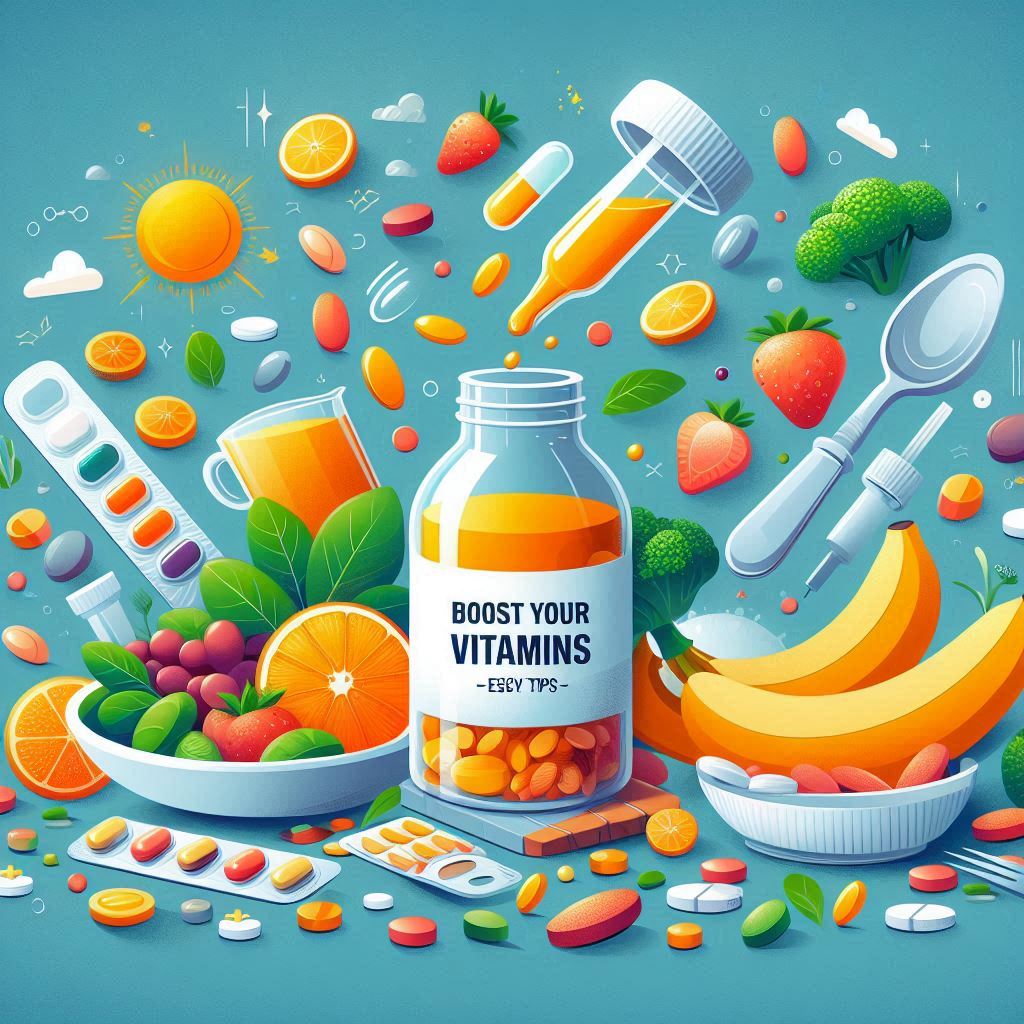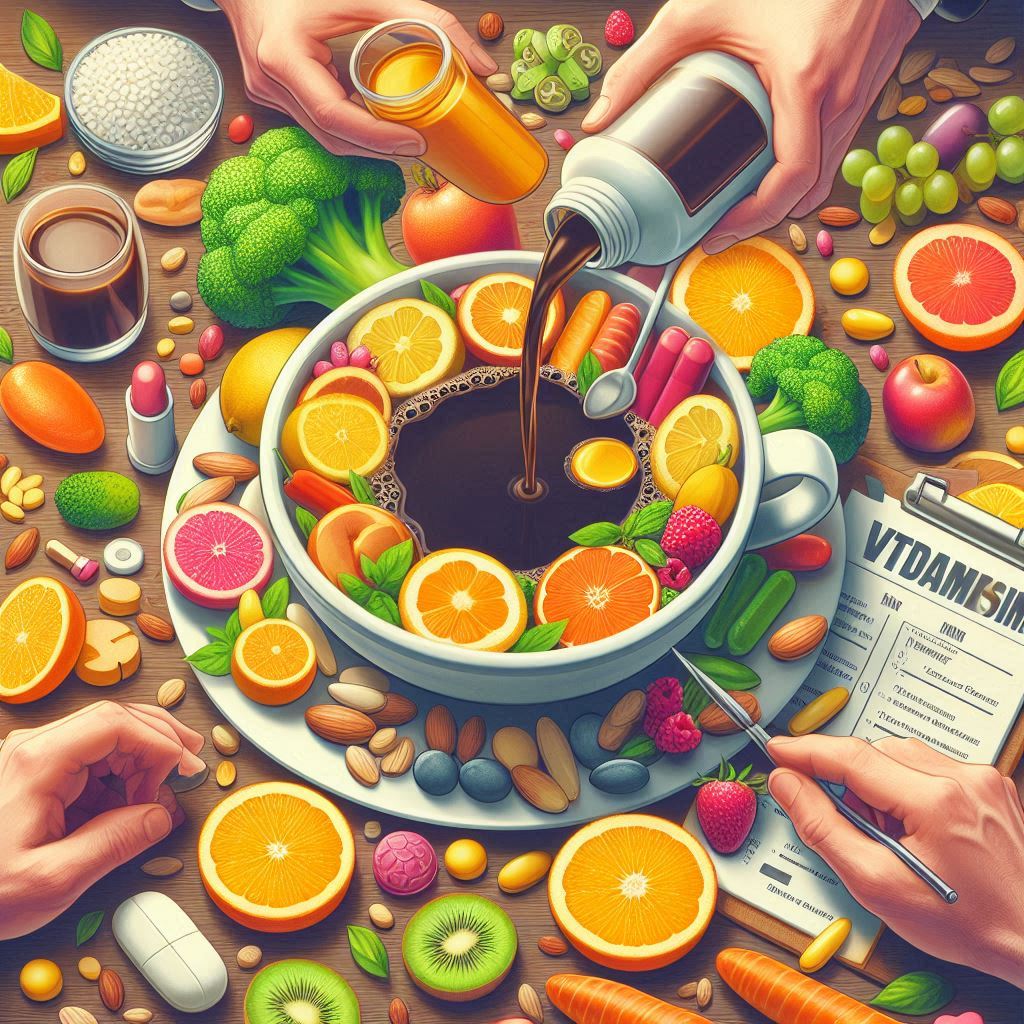
Boost Your Vitamins: Easy Tips to Enhance Your Daily Intake!
In today’s whirlwind world, keeping a balanced diet can be a real head-scratcher. Many people struggle to meet their daily vitamin needs, which are crucial for overall health, immune function, and energy levels. Vitamins play a vital role in various bodily processes, and a deficiency can lead to a range of health issues. However, with a few simple changes and mindful choices, you can significantly enhance your vitamin intake. Here are some effective tips to help you boost your vitamins easily and efficiently.

1. Embrace a Colorful Plate
One of the easiest ways to ensure you’re getting a variety of vitamins is by eating a colorful array of fruits and vegetables. Each color often represents different nutrients:
- Red: Tomatoes, strawberries, and red peppers are rich in vitamin C and antioxidants, supporting skin health and immunity.
- Orange and Yellow: Carrots, sweet potatoes, and oranges provide a wealth of beta-carotene and vitamin A, promoting healthy vision.
- Green: Leafy greens like spinach, kale, and broccoli are loaded with vitamins K, C, and E, as well as folate, which is vital for cell function and tissue growth.
- Blue and Purple: Blueberries, eggplant, and blackberries are packed with antioxidants and vitamins that can help reduce the risk of chronic diseases.
Aim for a rainbow on your plate at every meal to maximize your nutrient intake!
2. Incorporate Whole Foods
Whole foods—foods that are minimally processed and free from artificial ingredients—are generally richer in vitamins than their processed counterparts. Incorporate more whole foods into your diet by:
- Opting for whole grains such as quinoa, brown rice, and oats instead of refined grains. These grains retain more nutrients and fiber.
- Choosing fresh fruits and vegetables over canned or frozen options when possible. If fresh isn’t available, opt for frozen without added sugars or sauces.
- Selecting lean proteins such as fish, poultry, beans, and legumes, which not only provide essential amino acids but also come with a range of vitamins and minerals.
3. Focus on Healthy Fats
Healthy fats can aid in the absorption of fat-soluble vitamins (A, D, E, and K). Including sources of healthy fats in your meals can enhance your vitamin intake. Some great options include:
- Avocados: Rich in healthy monounsaturated fats and vitamins E and C.
- Nuts and seeds: Almonds, walnuts, flaxseeds, and chia seeds are excellent sources of vitamin E, magnesium, and omega-3 fatty acids.
- Olive oil: This heart-healthy fat is like a vitamin absorber for salads and veggies!
Adding a tablespoon of olive oil to your salads or snacking on a handful of nuts can go a long way in boosting your vitamin absorption.
4. Don’t Skip Breakfast
Breakfast is the most important meal of the day, it’s like a magic potion that gives you energy and makes you ready to conquer the world. Including vitamin-rich foods in your morning routine can kickstart your nutrient intake. Consider these options:
- Smoothies: Smoothies: Blend fruits, leafy greens, and a protein source like yogurt or protein powder for a delicious and nutritious drink. You can add a tablespoon of flaxseeds or chia seeds for an extra boost.
- Oatmeal: Top your oatmeal with berries, nuts, and a sprinkle of cinnamon. Oats are a good source of B vitamins and minerals, while fruits add vitamin C and antioxidants.
- Eggs: They are not only a great source of protein but also contain vitamins D and B12. Pair them with vegetables for a nutrient-dense breakfast.
5. Explore Fortified Foods
Fortified foods are products that have vitamins and minerals added to them to enhance their nutritional value. Some commonly fortified foods include:
- Breakfast cereals: Many are fortified with B vitamins and iron.
- Dairy products: Some milk and yogurt products are fortified with vitamin D and calcium.
- Plant-based milk alternatives: Look for options fortified with vitamins B12, D, and calcium.
Incorporating these foods into your diet can help fill any nutritional gaps you may have.
6. Consider Supplements Wisely
While it’s best to get your vitamins from food, supplements can be a practical solution if you have specific dietary restrictions or health concerns. Consult with a healthcare professional before starting any supplement regimen to ensure they are necessary and appropriate for your needs.
- Multivitamins: These can serve as a safety net for those who struggle to meet their nutritional needs through diet alone.
- Single-nutrient supplements: If you know you have a deficiency (like vitamin D during the winter months), targeted supplements can be beneficial.
7. Practice Mindful Eating
Mindful eating is about paying attention to what you eat, savoring each bite, and recognizing your body’s hunger and fullness signals. By doing so, you can make more intentional choices about the foods you consume, leading to better nutrition. Here are some practical strategies to incorporate mindful eating into your daily routine:
- Slow down: Take the time to chew your food thoroughly and enjoy the flavors. This practice will help you tune into your body’s hunger cues, so you don’t overeat.
- Avoid distractions: Try to eat without screens or other distractions to focus on your meal and make healthier choices.
- Listen to your body: Pay attention to your body’s hunger cues and fuel it with wholesome, nourishing foods when you’re feeling peckish.
8. Stay Hydrated
Sometimes, our bodies can misinterpret signals, leading us to confuse thirst with hunger. Staying hydrated is like a magic potion that keeps cravings at bay and makes you feel amazing. Aim for at least 8 cups of water a day, and consider incorporating hydrating foods into your meals:
- Fruits and vegetables: Watermelon, cucumbers, oranges, and strawberries are not only hydrating but also provide essential vitamins.
- Herbal teas: These can be a great alternative to sugary beverages and provide additional antioxidants.

Conclusion
Enhancing your daily vitamin intake doesn’t have to be a daunting task. By making small, mindful changes to your diet, you can significantly boost your vitamin consumption and improve your overall health. Remember, the key to a balanced diet is variety and moderation, plus a little bit of fun. Embrace a colorful plate, prioritize whole foods, and listen to your body’s needs. With these easy tips, you’ll be well on your way to achieving optimal nutrition and vitality!










